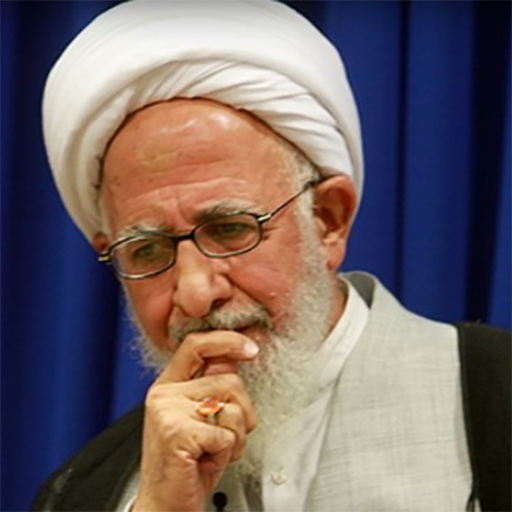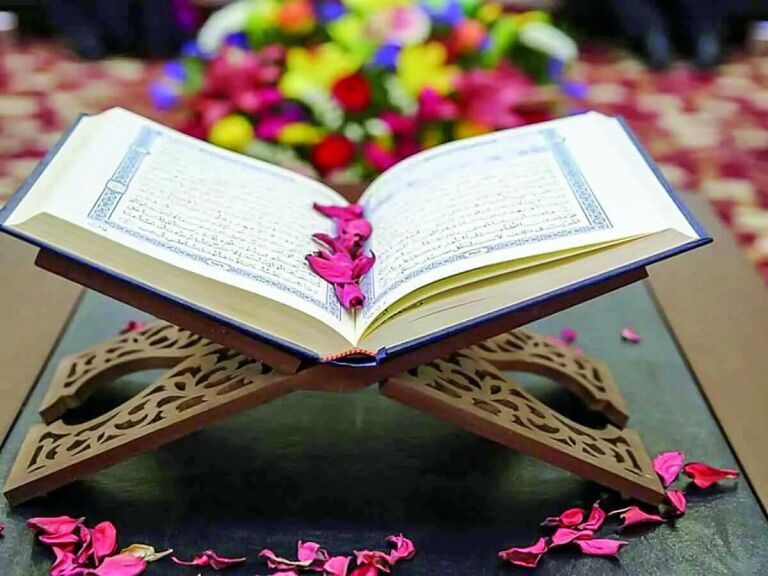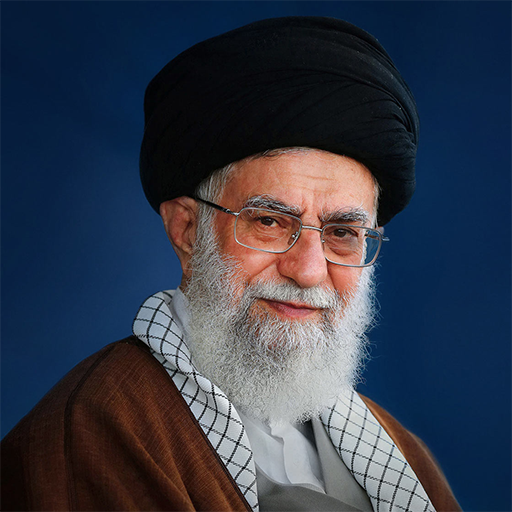
The Interpretation of the Verse of Mubaheleh
Ayatollah Javadi Amoli
Ayatollah Javadi Amoli stated that Mubaheleh day is one of the official holidays of the Shias and stated: 24 of Dhe al-Hajjeh is one of the most important days of the Shias, and it is this verse of Mubaheleh that should be celebrated on this day. These are part of our official holidays, our documents and our religion, these days should be recognized
He continued: "Mubaheleh" is a divine miracle. It means that even today, if someone finds that success and acquires that purity of soul, he can do it
In Christianity it was about "Trinity"
﴿لَقَدْ کَفَرَ الَّذینَ قالُوا إِنَّ اللَّهَ ثالِثُ ثَلاثَة﴾
in Klimit it was about "Deuteronomy"
Or it was said about Jews
And the Jews said Uzair is son of God
﴿وَ قالَتِ الْیهُودُ عُزَیرٌ ابْنُ اللَّه﴾
Those who were involved in Deuteronomy said ``Uzair is Ibnu Allah'', those who were involved in Trinity said ``Isa is Ibnu Allah''. The Holy Quran established proofs of monotheism and proved that neither Uzair is the Son of God nor the Messiah; The proof provided by the Quran is that. The likeness of Jesus with God is like the likeness of Adam created from the dust
﴿إِنَّ مَثَلَ عِیسَی عِندَ اللّهِ کَمَثَلِ آدَمَ خَلَقَهُ مِن تُرَاب﴾
The divine essence of Christ was made with the unseen power, in the internal system of Mary (peace be upon her)
ثُمَّ قَالَ لَهُ کُن فَیکُونُ(Then he said to him, do it)
The issue of the soul in the creation of Adam and the creation of Christ and other human beings, which is related to the world of celibacy The likeness of Jesus is with God like the likeness of Adam, who created him from dust, then said to him
“کن فیکون.”
This theme is mentioned in the Holy Quran in various forms, in the 60th verse of the blessed Surah "Ale-Emran" and the 61st verse, this issue of "Mubaheleh" is discussed. He argued with the Christians of Najran that in the history of Adam, it is certain for you that he had no father and no mother, but still he was not "Ibn Allah", he was the creation of God and "Abdullah". Jesus (peace be upon him) is also God's creation and he is "Abd Allah", he is neither "Allah" nor "Ibn Allah". They made this argument. When the argument did not work for them, they needed a practical proposal and that was "mubaheleh". God (subhanahu wa ta'ala) ordered his Prophet (peace and blessings of Allah be upon him) to do it, and He said, tell them that we are doing this and the way to do it is that we invite our children, our women and ourselves, so you should do the same. He said this during the previous day and they accepted it. The next day, when they saw the blessed presence of the beloved Prophet (peace and blessings of Allah be upon him), he embraced Hussein ebn Ali (peace be upon him), held the hand of Imam Hasan (peace be upon him), Fatemeh Zahra (peace be upon her) behind him and Amir al-Mu'minin (may God bless him) beside him, these were behind the Prophet. He said:
) نَدْعُ أَبْنَاءَنَا وَ أَبْنَاءَکُمْ﴾ Let our sons and your sons be called
That is, we bring Hasan and Hussein (peace be upon them) and you bring your children, we bring our daughters, and bring your daughters, we also bring those who are our souls, and do too; This is to cut the root of that family that has a false claim
ثُمَّ نَبْتَهِل فَنَجْعَلْ لَعْنَةَ اللّهِ عَلَی الْکَاذِبِینَ
Then we Nabtahel and will put the curse of Allah on the liars
There are many materials about these interpretations of the Quran, first of all, they are "mustajab al-dawa" and secondly, the implementation of this call is done by the permission of God, and they do not ask for a curse from God. which is a dimension of mercy and divine punishment, it is achieved by these words
The interpretation in this verse is significant from several points of view: one is that we do this, of course, since God himself ordered it, it is done with the permission of "Allah"; By God's permission, we curse the liars. Second, how many of us are either honest or liars. Remember that a person's truthfulness or falsity depends on the fact that he is an informer, giving news. A person who is a spectator of the stage is a listener of the stage, he is neither honest nor false; Because truth and falsity are not opposites. If someone did not report and was not an informer, he is neither true nor false; So it turns out that these people report, they brought news, and it turns out that these five people brought news, but one "authentic" which is the blessed presence of the Prophet (peace and blessings of God be upon him) and those four people who are the next infallibles from the way. God's mission and prophecy received the report and these are also the reporters of monotheism, and if they are not reporters, they are only observers of the scene and listeners, then they are neither true nor false
An important thing related to the story of Hazrat Amir (peace be upon him) is that he said about Hasan and Hussein (peace be upon him): we call our children
It is an interpretation of the Holy Quran. The Divine Essence interpreted Hasan and Hussein (peace be upon them) as the children of the Prophet (peace be upon them). They used to say:"Our sons are our children and our doughters are their children (the men of the distant)." It was an ignorant thought
The main interpretation is: انفسنا Anfūsāna. We have all heard the expression "Hussein is from me and I am from Hussein" during the reign of Hussein Ibn Ali (peace be upon him). Sometimes it is said: "Hussein Min’ni", because he is the grandson of the Prophet; "I am from Hussein", because the religion of the Holy Prophet is clear through the uprising of Hussein, we thought that "I am from Hussein" means from this chapter. It is clear that this interpretation is because it was said about Imam Hasan (peace be upon him) that "Hasan is from me and I am from him" and the same interpretation was said many years ago about Ali Ibn Abi Taleb (peace be upon him) that "Ali is from me" And I am from Ali." This was before the stream of " Hussein is from me and I am from Hussein "
What is the evidence of the presence of the Holy Prophet saying: " Ali is from me" And I am from Ali " Because God said in the Quran that ( call our selves and your selves), of course sometimes before the revelation and sometimes after the revelation, that goes back to the unseen knowledge of the blessed existence of the beloved Messenger (peace be upon him and his family). If Ali Ibn Abi Talib (peace be upon him) is the text of the existence of the beloved Messenger (peace be upon him) and the difference is between prophet hood and Imamat, then it is correct for the Prophet (peace be upon him) to say:"Ali is from me and I am from Ali", As he said: "Hussein is from me and I am from Hussain." In this light verse, Mubaheleh, the Most Holy Essence of God, considered the blessed existence of Hazrat Amir as the soul of the Prophet
(and our selves and your selves) = (وَأَنْفُسَنَا وَأَنْفُسَکُمْ)
That luminous expression that is in the hadiths."All of them are one light"
It clarifies that these are the same truth, they changed into fourteen clothes
"Ali Menni va ana men Ali" Its meaning becomes clear both "Hossein Menni va ana men Hussein"
Why did the blessed presence of God's Messenger not say this about his son Ebrahim, he says about his grandson, Ebrahim was His son, , but if a prophet wants to say, "I am from such and such a person," that is, the issue of Imamat, Wilayat, and Prophethood is a light. The face of the Prophet takes the form of Hazrat Fatemeh Zahra , sometimes it takes the form of twelve imams, of course, each place has its own special rank, so what is in our hadiths that "Ali is from me and I am from Ali" which He said this before and after Mubaheleh he said it in a more formal way.
The importance of the purification verse for Imams (peace be upon them)
Ayatollah Javadi Amoli also stated about the importance of the purification verse for the Imams (peace be upon them): The Imams (peace be upon them) used to brag about the purification verse and considered it the proof of their righteousness. Even though Imam Sajjad (peace be upon him) was in captivity of the Umayyes and the people of Syria looked at him as a foreigner (outgoing and riotous towards the government of the time), he justified his rightness with the help of the mentioned verse, like this The Syrian man who came to humiliate and blame them. Imam asked him: Have you read in Surah Ahzab
إنما یرید الله لیذهب عنکم الرجس اهل البیت و یطهرکم تطهیرا
He said: are you mean of this verse? He said: Yes, the meaning of the verse is about us
Amir al-Mu'minin (peace be upon him) also said on the Day of Shura referring to this verse: I
swear by God, is there anyone among you about whom the verse of purification was revealed
The council members all answered: No
When the Prophet, peace and blessings of God be upon him and his family peace be upon them, gathered me, Fatemeh, Hasan and Hussein under the robe and said: Oh my God! These are my Ahlul Bayt, so remove dirt and impurity from them and make them clean and pure
Imam Hasan Mojtabi (peace be upon him) has mentioned this historical incident in his speech in the presence of Mu'awiyeh, after accepting the peace and compromise imposed with Mu’awiyeh, while enumerating the virtues and perfections of his family
Such narrations, which have many examples, show that the Shia imams (peace be upon them) believed that this verse was special to them and they did not consider anyone to share it. Abu Saeed Khodri narrated that the Messenger of God Allah, peace and blessings be upon him, said: The verse of purification was revealed about five people: about me and about Ali, Fatemeh, Hasan and Hussein; "This verse was revealed five times for me, Ali, Fatemeh, Hasan, and Hussein
In this hadith and similar ones, the examples of Ahl al-Bayt have been clearly explained. It is stated in the hadiths: On one of the days when the Holy Prophet, may God bless him, was in the house of Umme Salameh, jibraeil revealed the verse to the Prophet. Then the Holy Prophet, peace and blessings of God be upon him, summoned Hasan, Hussein, Fatemeh and Ali (peace be upon them) and seated them around him. Then he put a cloth or a pashmin robe over everyone's head and recited this verse
إنما یرید الله لیذهب عنکم الرجس اهل البیت و یطهرکم تطهیرا
And said: o’ God! These are my family members. God! Remove filth and impurity from them and purify them
Seeing this scene, Umme Salameh said: O Messenger of God! Am I included in this collection and subject to this verse? He said: You are above your place and status; you are above goodness
This hadith and others like it show Umme Salame's desire of not being able to attend that gathering
Ayatollah Javadi Amoli, in another part of this discussion, pointed out the manner of behavior of the Prophet of Islam (PBUH) after the revelation of this verse towards his family and expressed: After the revelation of the verse, the purification of the Holy Prophet, peace and blessings of God be upon him. used to stand at the door of Fatemeh Zahra's house during the morning prayer for a long time and put his hands on both sides of the door frame and say:
السلام علیکم أهل البیت ورحمة الله وبرکاته، الصلاة رحمکم الله ﴿إنّما یرید الله لیذهب عنکم الرجس أهلالبیت ویطهرکم تطهیراً﴾ أنا حرب لمن حاربتم، أنا سلم لمن سالمتم»
It has been narrated from Ibn Abbas: He used to do this every day at the time of each prayer, that is, five times a day. There are different narrations about the duration of the Prophet's coming and greeting and reciting the purification verse, which are: forty days, six months, seven months, eight months, nine months, seventeen months, and some narrations have verses that He used to repeat this until the end of his noble life
At the end, Grand Ayatollah Javadi Amoli stressed: Therefore, these days are very suitable opportunities and are part of the divine days
إِنَّ لِرَبِّکُمْ فِی أَیامِ دَهْرِکُمْ نَفَحَاتٍ أَلَا فَتَعَرَّضُوا لَهَا
The breeze does not always blow to the beach, when there is a breeze, he said, expose yourself to it! The day of Mubaheleh and the day of revelation of the blessed Surah "Hal Ata" are like this
Sources
Ayatollah Javadi Amoli's message to the ceremony of Mubaheleh Day, book Shamim Velayat authored by Ayatollah Javadi Amoli, Archive of the Ethical Lessons



